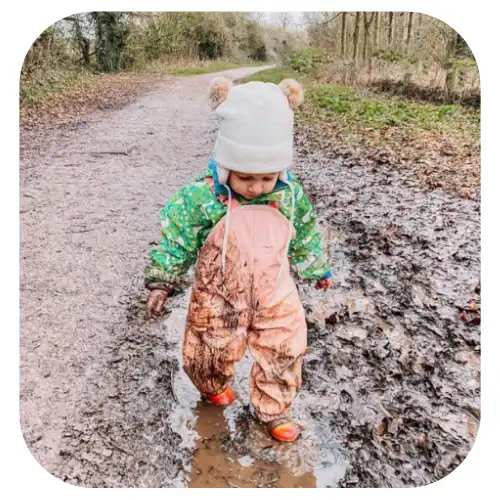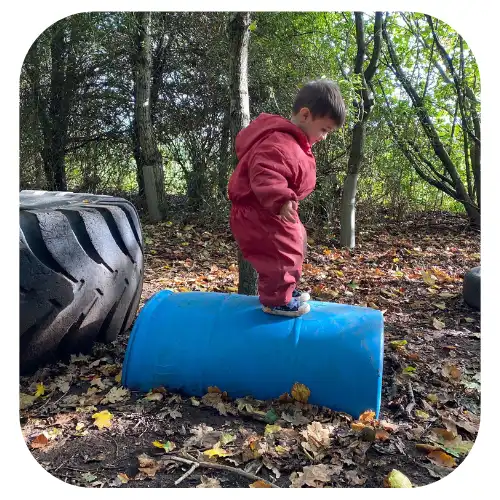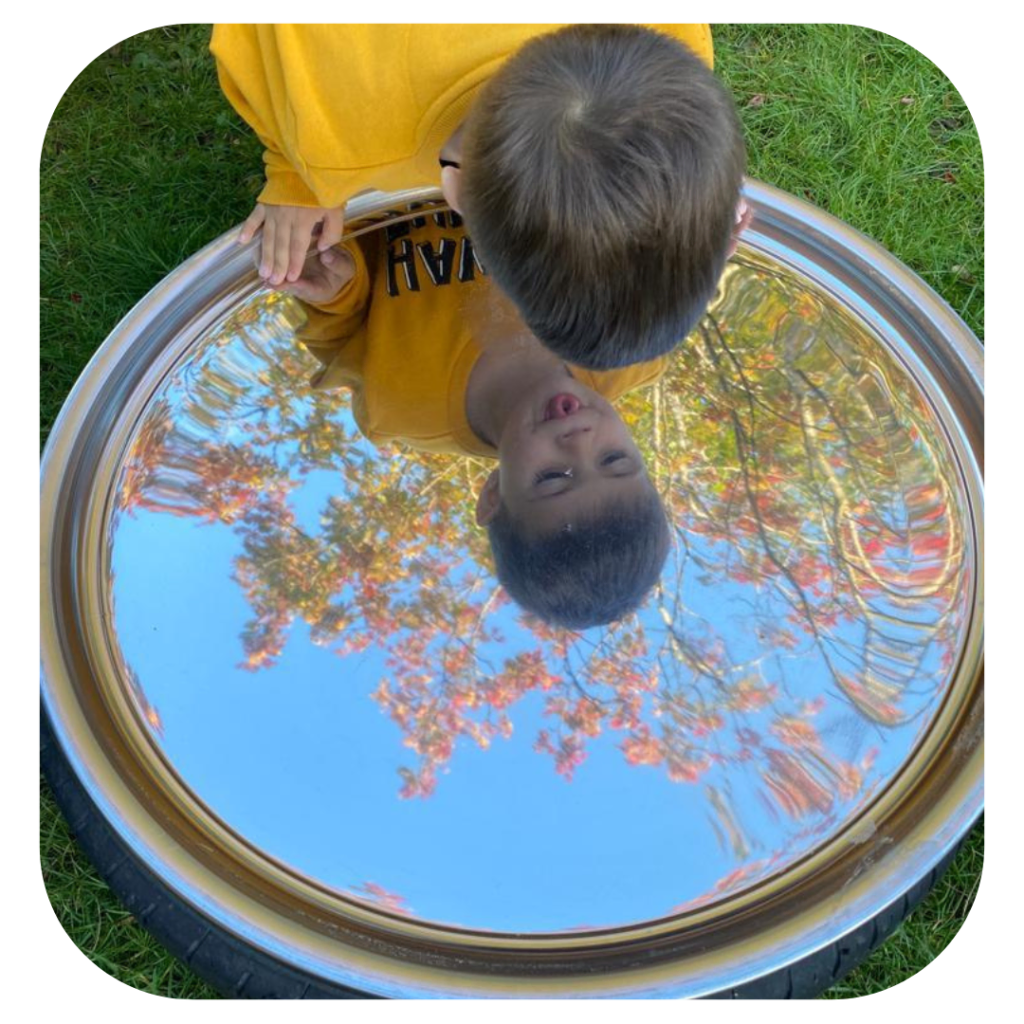How to Nurture Self Esteem
Self esteem can be defined as the way in which all of us, adults and children alike, perceive ourselves. High self esteem is associated with confidence, good mental health and a sense of belonging, all things we strive to nurture in the Early Years Foundation Stage (EYFS). Our intention is for children to become questioning, curious and independent learners who have positive attitudes towards themselves and learning. To achieve this, a focus on Personal, Social and Emotional Development (PSED) is important in nurturing a sense of self, with children understanding that they are capable, valued and belong as a member of the setting which they attend, therefore influencing self-esteem.
Why is it important to nurture self esteem?
As we get used to a world post lockdowns and restrictions, there will inevitably be some after effects of social isolation and parental stress factors. Data gathered by Ofsted suggests that children’s PSED has been particularly affected. Staff noted that the impact of reduced social interactions in children included shyness, lack of confidence engaging with adults and their peers, reluctance to join in, and taking longer than usual to settle. These challenges mean children first need support to separate from caregivers, adjust to the routines of a setting and develop their social skills in order to influence their self-esteem.
Aside from Covid, there are further factors which can impact on children’s emotional wellbeing and sense of worth. Over four million children in the UK, equivalent to one in three, are living in poverty (Joseph Rowntree Foundation, 2022). This can be a parental stress factor, influencing the home environment and relationships as families struggle to make ends meet. Additionally, nearly a third of children are overweight or obese, impacting on self image.
If we are to mitigate some of these factors in the Early Years, we need to really consider our role in developing children’s self-esteem, helping them to believe in themselves. Nurturing self-esteem in the Early Years impacts on PSED but also on all other areas of learning. Children with high levels of self-esteem appreciate their own self-worth and are therefore more confident in their approach to activities and experiences. They feel like they can succeed at things, have valuable skills and abilities and are able to learn from their mistakes. These skills are then transferable throughout a child’s education, leading them to becoming curious, independent and resilient learners.

The role of the adult
The essence of developing self-esteem in the Early Years lies in strong attachments, fostered through an effective key person approach. This starts from the outset, through warm, sensitive and responsive interactions. Children need to know that we are their safe space to offer words of encouragement and reassurance. In this respect, we begin to see how the language we use and the way we communicate with young children can impact on self-esteem. Through positive discussions with children, we can help them see what makes them, and others, unique and special. There will be moments in the day where we can observe, watching children at play and offering words of encouragement and praise, not just for achievements but also for trying. We can inspire children to be reflective, talking about their accomplishments, the challenges and barriers they have overcome and validate their progress. This helps them appreciate that the effort is just as important as the final product. Children see themselves in a positive light, valuable as they are learning who they are becoming. This brings a sense of belonging, as children realise they are worthwhile and respected. All this requires skilled, responsive educators who recognise the need to tune in to children, understand their interests, characteristics of effective learning and facilitate a space that is both inviting but also offers challenge.
The spaces within our setting need to be carefully planned and considered, acknowledging that the environment belongs to the children, rather than us. It should be somewhere where the child feels safe, with features that reflect the whole cohort. In this respect, we need to be flexible, adapting our provision in response to interests, personalities, needs and characteristics of effective learning. This way, we are creating a nurturing environment where children can be themselves.
To give children a positive perception of their skills and abilities, the adults need to facilitate a space where children can play freely, exploring, experimenting and trying out ideas. Open ended resources are fantastic for this as there is no right or wrong way to play – learning is a process rather than an end product. Children can express themselves and engage on whichever level is appropriate for them, free from pre-imposed learning outcomes. We can enable children to contribute to their environment, showing that their opinions and ideas are valued.
Through a lens of inclusivity, we recognise that children all have different needs. Rather than labelling children as ‘quiet’, ‘shy’, ‘noisy’ etc, we can instead recognise their key characteristics which make them unique, helping them to see how they contribute to the group. If we label, we risk a self-fulfilling prophecy where children take on the label we have assigned them, displaying behaviour associated with this which inhibits their personality and thereby their self-esteem. Quieter children might benefit from cosy nooks where they can escape the hustle and bustle. Children with more energy will welcome outdoor play where they can run, climb and be free away from the constraints of four walls. We are celebrating the diversity of personalities and characteristics and thereby self-image and self-esteem.


There is a need to acknowledge the voice of the child, offering opportunities where they can make decisions for themselves. This could be as simple as respecting their wishes for not wanting to take part in an activity or choosing to take their jumper off inside. Children need to know that they are listened to and can make choices about themselves, building their confidence and helping them realise that they are independent beings.
However, there are also benefits in taking children out of their comfort zone, initiating risky play experiences. This type of play encourages children to think critically, assessing risk and making their own decisions. In doing so, they are testing their limits, developing their confidence and exploring the boundaries of what they are comfortable with. They feel a sense of empowerment and achievement, learning more about their skills and abilities. This is a good feeling, children gain an understanding of what makes them unique. As Educators, we need to provide an environment which promotes risk as a child’s approach to activities can determine their self-esteem. Children need to experience failure in order to value their accomplishments as well as to recognise that making mistakes is accepted as part of a learning process. If children achieve at everything straight away, they will never experience trial and error and persistence, the joy of trying hard and then achieving. It is through experiencing failure that children learn to become resilient, bouncing back after challenges and knowing their own worth. When children take time to master a skill, it makes those successes so much more meaningful. They begin to see their own progress, especially if we offer opportunities for reflection, helping them recognise how far they’ve come. Through these experiences, children’s self-esteem increases and setbacks are not as damaging. Children know their own worth and recognise their ability to overcome challenges.
Sarah Watkins, founder of Dandy Lions, a nature based play provider, fosters self-esteem and confidence through the outdoor play and learning sessions she leads….


‘It can be tempting to step in and solve problems for children who are struggling in the outdoor environment, especially when time is an issue. However, for increased confidence and self-esteem, children need to feel that we see them as competent and trusted. For example, at Dandy Lions, we support young children to use knives, saws and other tools, as well as cooking over the fire. Most of our sessions are outdoors and a study by the Wildlife Trust (2019) found that 84% of children who took part in regular outdoor activities felt capable of new things when they tried. Having high expectations of children outdoors builds their coping strategies for now and for later life. Wild spaces invite children to find out what they’re capable of and test things out. (One of the fascinating things about working with young children is that their capabilities change so rapidly.) Enabling children to access wild spaces helps them build physical and emotional competence (and this space doesn’t need to be big for a very young child!).’
How we provide risk in play is dependent on the cohort of the children, their needs and characteristics of effective learning. It could be as simple as a wooden log in the outdoor area which children can walk across – initially, those with lower self esteem and confidence might need the reassurance of someone holding their hand. With time, they learn that it’s OK to try it independently, knowing that if they fall off, they can just try again as it’s all part of the process. As children accomplish the task, there’s an overwhelming sense of achievement, impacting on their view of themselves and their abilities – their self esteem.

However, we do need to find a balance. The harder the activity is or the more difficult it is to access at the appropriate level, the less likely the child is to achieve independently. This can result in the opposite effect from what we are looking for. Children can feel insecure about their skills, uncertain about their capabilities, knocking their self-esteem and confidence.
And finally…
Early childhood is a time of immense growth as children’s bodies and brains develop. They are continually accommodating new knowledge as a result of the experiences and opportunities within the EYFS. We can encourage children to develop a positive mind-set and high self-esteem based on our interactions, attitudes, language, nonverbal communication and the physical space we provide. Through the promotion of acceptance, inclusivity and caring practices, we can empower children as they develop their identities, building strong foundations for future learning.

Further reading here.
Facebook: https://www.facebook.com/cosydirect/
Twitter: https://twitter.com/cosydirect
Instagram: https://www.instagram.com/cosydirect/




